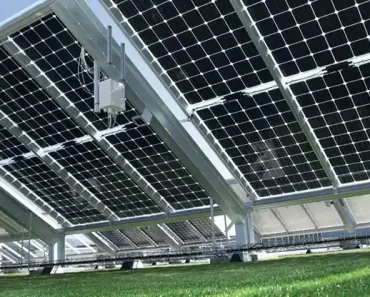Hybrid vehicles are increasingly favored due to their reduced carbon dioxide emissions and superior fuel efficiency. Their ability to operate for extended distances on electric power contributes to their decreased fuel consumption.
For those contemplating acquiring a hybrid, it’s essential to comprehend the merits and demerits associated with their ownership and usage. Continue reading to gain insights into the advantages and disadvantages of hybrid vehicles. This knowledge will empower you to assess if a hybrid aligns with your transportation needs.
What Is a Hybrid Car?
In essence, a hybrid vehicle integrates at least one electric motor with a traditional gasoline engine for propulsion. Its system also harnesses energy via regenerative braking. At times, the electric motor operates independently, at other times the gasoline engine takes over, and on occasions, both work in tandem. This synergy reduces gasoline consumption, enhancing fuel efficiency. In certain instances, the incorporation of electric power can even augment performance.
Given that hybrid vehicles typically release fewer CO2 emissions than their conventional counterparts, owners might enjoy reduced initial road taxes and a more favorable company car tax rate. Additionally, they may be exempt from certain congestion charges.
Types of Hybrid Vehicles
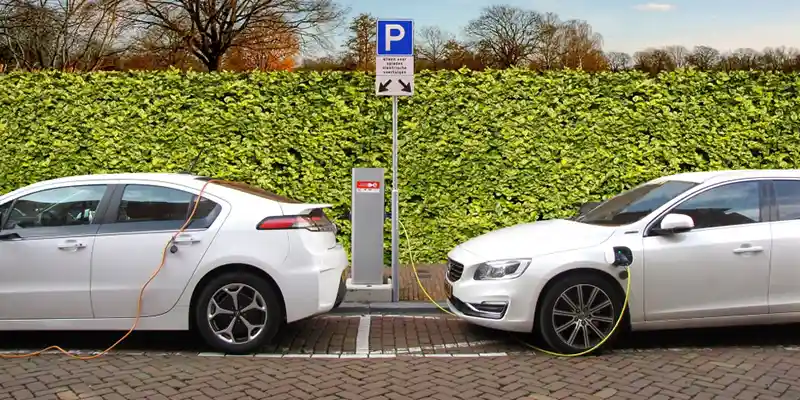
While almost everyone has heard of hybrid vehicles, the majority of people are unaware of the various types on the market.
1. Parallel Hybrid Vehicles
The most prevalent form of hybrid is exemplified by the Toyota Prius. The vehicle’s wheels can be driven in three distinct manners: solely by the engine, exclusively by the electric motor, or through a combination of both power sources.
In the case of the Prius, the electric motor takes charge during initial acceleration and operates at speeds up to 15mph. This makes it especially efficient for urban driving characterized by frequent stops and starts. As the vehicle’s speed rises, the petrol engine becomes predominant, offering optimal performance during vigorous acceleration.
The vehicle is also equipped with a regenerative braking system that captures energy during deceleration or braking, storing it in the battery for subsequent use. However, given the battery’s limited capacity, the electric motor can only drive the car for approximately 1.25 miles.
2. Hybrid Vehicles with Extended Range
Vehicles of this kind solely utilize a conventional engine to produce electricity, which subsequently powers a generator that replenishes the batteries. The engine does not propel the vehicle directly but rather supplies energy to the electric motor. A prime example of this design is the BMW i3 with a Range Extender, which is currently available only in the pre-owned market.
Hybrids can further be categorized as “strong” or “mild” based on their battery capacity. Strong hybrids, equipped with more substantial battery reserves, can cover greater distances solely on electric power compared to their mild hybrid counterparts.
3. Plug-in Hybrid Vehicles
As suggested by its designation, this hybrid variant can be recharged either by connecting it to an electrical source or through on-the-go charging mechanisms.
Serving as an intermediary between traditional hybrids and pure electric vehicles, plug-in hybrids boast standard engines complemented by more substantial batteries than their non-plug-in counterparts. This allows them to journey considerably longer solely on electric power, reaching distances of up to 50 miles in certain instances.
Pros of Hybrid Cars
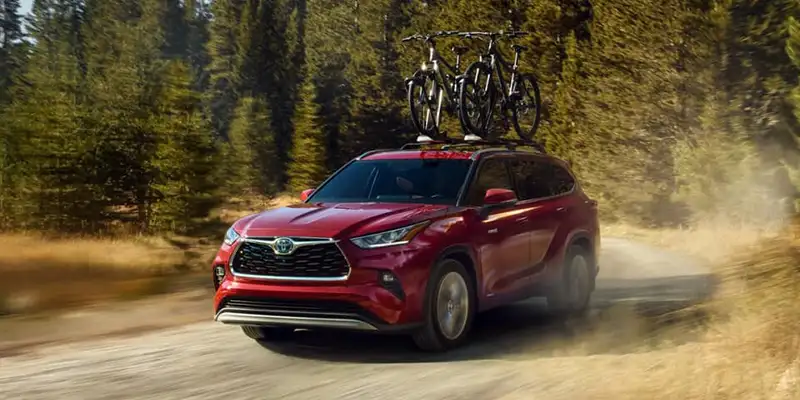
1. Eco-Friendlier
While it would be ideal to assert that hybrid vehicles are entirely eco-friendly, the reality is they still rely on gasoline. Nevertheless, when compared to conventional gasoline-powered vehicles, hybrids are decidedly more environmentally conscious due to their reduced carbon emissions. This represents a positive stride in combating global warming.
2. Reduced Reliance on Gas
Owing to their efficiency, hybrid cars require less gasoline to operate. When juxtaposed with a gasoline-powered counterpart of the same model, the savings accrued over the vehicle’s lifespan are substantial. Moreover, decreased dependence on gasoline diminishes our society’s cumulative oil consumption, a benefit that will amplify as the adoption of hybrid vehicles increases.
3. Reduced Air Pollution
An additional benefit of hybrid vehicles is their reduced environmental pollution. Given that they utilize diminished quantities of fossil fuels, the emission levels are markedly reduced. This is particularly advantageous in major cities, often plagued by subpar air quality. Transitioning from traditional cars to hybrid models could notably enhance the air quality in numerous metropolitan areas globally.
4. Hybrid Vehicles Are Quiet
Upon initially operating a hybrid vehicle, the absence of the pronounced roar from a gasoline-powered engine might be unsettling. You may even question whether the vehicle is actually activated. Although the engine does engage as you progress, its sound remains considerably subtler than that of a traditional car.
5. Regenerative Braking System
In hybrid vehicles, applying the brakes facilitates a modest recharge of the battery. An intrinsic system activates to harness the energy produced, redirecting it to charge the battery. This process decreases both the frequency and necessity of routine battery recharging stops.
6. Lower Maintenance Costs
While operating a hybrid vehicle, particularly within urban settings, you’ll observe that the gasoline engine seldom engages. Consequently, the vehicle necessitates reduced maintenance throughout its lifespan. Even oil changes will be less frequent than with traditional vehicles.
7. Extended Warranties
Upon acquiring a new vehicle, a suite of warranties typically accompanies it. However, when you invest in a hybrid car, additional specific warranties are extended to you. Notably, every hybrid vehicle comes with a 10-year/150,000-mile hybrid battery warranty, an offer exclusive to hybrid models.
8. Potentially Higher Resale Value
As fuel prices escalate and hybrid vehicles garner increased attention, a growing number of individuals are gravitating towards fuel-efficient cars. Consequently, the resale value of hybrids is witnessing an upward trend. Should you choose to trade or sell your hybrid vehicle, it is likely that you’ll achieve a greater return on your initial investment compared to a conventional vehicle.
9. High Durability of Hybrid Cars
Contrary to prevailing perceptions, hybrid vehicles boast remarkable durability. Indeed, such vehicles can remain operational for 15 years or even longer. While there may be a need to replace the battery over its lifespan, the overall longevity of a hybrid car remains commendable.
Cons of Hybrid Cars
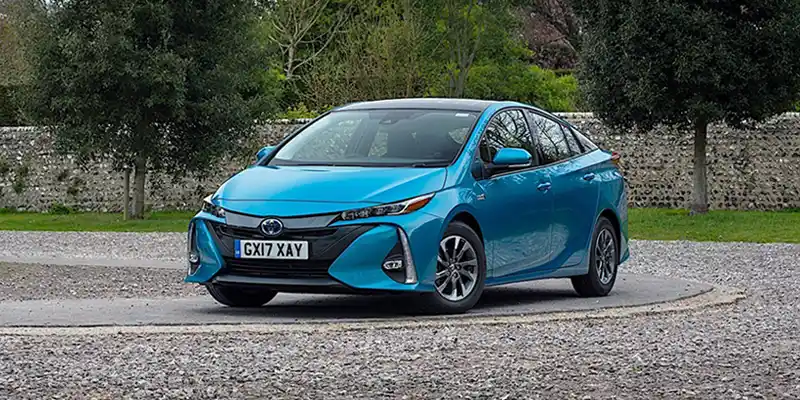
1. Hybrid Vehicles Are Only a Short-term Solution
Hybrid vehicles represent an interim solution. Indeed, since they still rely on fossil fuels to some extent, their capacity to significantly mitigate global warming in the long term is limited. Thus, while these vehicles can aid in the ongoing energy transition, they may likely become outdated within the coming decades.
2. Slower Driving
Operating a hybrid vehicle at elevated speeds may not be as fuel-efficient as one might hope. While the vehicle can reach high speeds, doing so tends to utilize more gasoline. This contradicts the primary advantage of owning a hybrid, which is to prioritize electrical power over gasoline consumption. Consequently, to maximize the efficiency of the electric motor, it is advisable to maintain moderate speeds.
3. More Pricey
Although the cost of hybrid vehicles has reduced over time, they typically remain $2,000 to $3,000 pricier than their conventional counterparts of the same make and model. Admittedly, these vehicles offer savings in operational and maintenance expenses throughout their lifespan. However, the initial premium may render hybrids financially inaccessible for some potential buyers.
4. High-voltage System Repairs Can Be Costly
While hybrid vehicles demand fewer routine maintenance checks, repairs can be expensive, particularly if issues arise with the high-voltage system. Depending on the battery type and your vehicle’s specific make and model, the cost to replace a malfunctioning or depleted high-voltage battery can run into thousands of dollars.
Beyond the conventional technology present in internal combustion engine (ICE) vehicles, hybrids encompass an array of sophisticated components. This includes expansive high-voltage battery packs, inverters, electric motors, and advanced cooling systems. Such intricacies not only elevate the cost of repairs for hybrids but also pose a challenge as not all mechanics possess the requisite expertise and equipment.
5. Insuring Hybrid Vehicles Is More Expensive
Hybrid vehicles generally carry higher insurance premiums than their gasoline-powered counterparts of the same make and model. This heightened cost stems from two primary reasons. Firstly, hybrids, being more costly to acquire, demand a higher replacement value. Secondly, their components tend to be pricier. Insurance providers recognize these factors and adjust the insurance premiums accordingly.
6. Accident from High Voltage in Batteries
The elevated voltage within the batteries poses a severe electrocution risk in the event of an accident. This danger can hinder rescue efforts, complicating the safe extraction of the driver and passengers from the vehicle.
7. Battery Replacement Can Be Costly
The need for battery replacement in hybrid vehicles is relatively rare. Nonetheless, should the necessity arise, the associated expenses can be substantial. These batteries are not low-priced, often running into the thousands. Consequently, when considering the acquisition of a hybrid vehicle, it’s prudent to account for potential replacement costs to preclude unforeseen financial challenges down the line.
8. Performance May Be Less Than That of Conventional Vehicles
Typically, hybrid vehicles may exhibit performance levels that lag behind their conventional counterparts. Though technological advancements promise enhanced performance for hybrids in the forthcoming years, their present capabilities remain somewhat constrained. Such considerations are vital when deliberating on a prospective purchase.
What Can Affect Your Hybrid Battery’s Life?
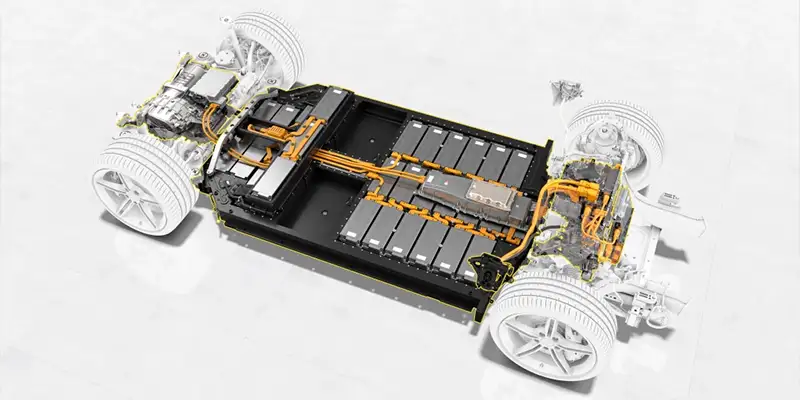
The lifespan of your hybrid battery is influenced by numerous factors, akin to any other component within your vehicle. Elements such as driving habits, maintenance practices, charging protocols, and even your geographical location play pivotal roles.
Consistent maintenance is vital for the seamless operation of your hybrid. The gasoline engine and the electric motor operate interdependently; a malfunction in one could detrimentally affect the other. Routine services should incorporate battery inspections. If any battery cells display anomalies, reconditioning can potentially prolong the battery’s longevity. Overlooking these regular evaluations can truncate battery life.
Your battery’s charging regimen is of paramount importance. To maximize the utility of your hybrid battery, it’s imperative to adhere to the manufacturer’s prescribed charging guidelines. Ideally, refrain from depleting the battery entirely and aim to charge it comprehensively when it nears exhaustion. It’s prudent to eschew recurrent brief top-ups and to avoid driving on a critically depleted battery.
Batteries are optimized to function within specific temperature bounds. Prolonged exposure to extreme temperatures, be it chilling cold or scorching heat, can compromise battery integrity. During sweltering conditions, a supplementary battery system aids in temperature regulation for the main battery pack. Ensure regular cleaning of this auxiliary fan, integrating it into your maintenance regime, to maintain optimal airflow and cooling.
Final Words
Hybrid vehicles present a spectrum of benefits and drawbacks. While they serve as valuable intermediaries in the ongoing energy transition, I am of the view that hybrid technologies may not hold a sustainable future, given the superior alternatives on the horizon.
Choosing a hybrid car involves more than a mere commitment to environmental sustainability. It necessitates thorough research on the infrastructure and resources available in your vicinity to support and maintain such vehicles. Depending on the specific model selected, specialized mechanics or alternative fuel sources may be essential. Additionally, it would be prudent to explore potential incentives or rebates that could mitigate the initial acquisition costs.


